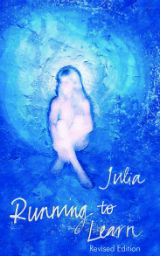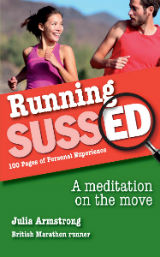Matt Hyde
‘How to be Idle’ by Tom Hodgkinson was bought for me as a tongue in cheek gesture following a career path decision I made in 2010. The walk I made towards the head teachers office is as vivid in my minds’ eye now as it was on the frosty morning in February over five years ago. I was invited in after a bold knock at the door and forty five minutes later I shook hands, strolled purposefully to the car park, got in my car and drove home... without my head of department status and a four day teaching week!
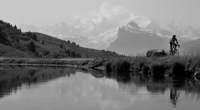
“A superb, life enhancing celebration of idleness. A book to be enjoyed at leisure and to change lives” SUNDAY TIMES
“Doing nothing is hard work” Oscar Wilde
Tom Hodgkinson encourages the notion that one should be able to “loaf, lie in, skive off, sleep, nurse a hangover and lunch at leisure”. He questions the work obsessed modern day culture that insists on putting obstacles between ourselves and our dreams. The book takes a look at the lives of the population, pre and post the industrial revolution. He explains ‘how it was’ before the Protestant work ethic and moves onto how ‘work’ was re-enforced through religion to ensure that ‘people are kept busy to keep them out of mischief’ after all the bible says “the devil makes work for idle hands”.
‘How to be Idle’ cleverly paints an idyllic picture of times before the industrial revolution when work was freely chosen and if that this was the case, “work was in fact not work at all”. Being idle was about being free. It was about being free to live the lives that we wanted to lead. He quotes “free from bosses, wages, commuting, consuming and debt. Being idle is about fun, pleasure and joy”
The picture becomes clearer when the notion of ‘overwork’ is explained. People did not DO any more than they needed to DO. They made, sold, grew, traded only what they needed. It was a world that knew nothing of excess. Anything in addition to what was needed was a waste of time, effort and resource. Once margins had been reached, then tools were downed and leisure enjoyed. The fact that people pre industrial revolution worked hard to gain ‘leisure time’ is a key concept, highlighted by quotes such as;
"work patterns were one of alternate bouts of intense labour and of idleness wherever men were in control of their own working lives". Thompson E.P (1991) Customs in common.
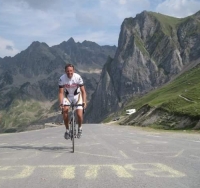
There was no greed, just a need to exist and co-exist in harmony with the immediate community.
However, over time the new Protestant work ethic succeeded. The industrial revolution above all was the battle between hard work and laziness, hard work won. Machines replaced hands and minds, workshops became ‘manufactories’, self employed became employed and wages replaced trading. Groceries were now bought where once they would have been grown themselves. James Hargreaves invention of the ‘spinning Jenny’ in 1764 and the steam engines arrival in the same year through James Watt were contributions that paved the way for over production for profit in mass production facilities. People may now be earning wages and in possession of more money, but even in the early stages of industrial development, life quality was quickly diminishing. “Joyful chaos, working in tune with the seasons, telling the time by the sun, variety change and self direction; all this was replaced with a brutal, standardization of work culture” the effect of which we suffer from today.
Without the scene setting history lessons at the start of the book, the author’s witty idle anecdotes would not have so much punch. From being ‘out idled’ by a Frenchman on a business trip who was in no rush to return to work after a three hour lunch break; to a lobby for more Bank holidays to be included on the annual calendar to reduce the Sunday blues (in both cases, we would get the same amount of work done anyway!)
Throughout this read life mantras were appearing in my head constantly, “less work means more living”, “don’t let life get in the way of living”, quotes from other religions “Whoever practices non-action occupies himself with not being occupied” Lao Tzu – Taoist wisdom became my new chants!!
I fancied living life again. Living life again, free from the burdens that had numbed me for too long. I longed for a return to a pre industrial revolution way of thinking. An idle life!
Breaking the news of my decision to ‘step down’ to my department was incredibly liberating and has ultimately changed my life. The decision to relinquish my Head of Physical Education status in a Nationally recognised Sports College and reduce my working week to four days certainly caused the arrival of ‘How to be idle’ on my desk and therefore significant in my choice to review it in this essay. My good friend and colleague who bought it for me had no idea of its contents and bought it by its title only. A book truly judged by its cover alone and in truth I felt judged in exactly the same way.
“Well, now that you will be slacking off on a Monday you are gonna need something to do!” was the hand over comment. This off the cuff remark was to be only the beginning of many quips and jokes aimed in my direction. I hadn’t prepared myself for the strength of reaction from the people close to me, both at work and from my friends and family outside of my professional life.
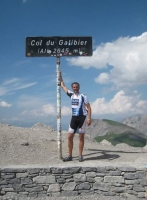
“What are you doing?” my braver friends would ask. “Professional suicide” was mentioned more than once, “Are you sure?” was a question answered frequently. I subsequently discovered that “What is he doing?” was a question raised in my absence in the weeks/months that passed and every time I was involved in ‘the conversation’ I gained more and more strength from my answers.
My career, my standing amongst friends and colleagues, my school, my department and the students within it was my world for fifteen years! I laughed hard and out loud every one of those days; my colleagues became my friends and we worked so very hard to be able to enjoy the fruits of our efforts. In a tough school in a socially deprived area of East Sussex we became nationally recognised through our sport and our ground breaking Physical Education initiatives. We were invited to present at annual conferences and were frequently visited to demonstrate and pass on to others what we did on a daily basis. We prided ourselves on our professionalism, our expertise but most of all through our shared vision of what PE in a school like ours was all about. Boys went on to represent their countries in cricket and football and reach the dizzy heights of the premier league. Boys who studied our subject at GCSE and at A-level excelled and a new generation of Hastings young men were made aware of what a University was. For those who did not study so hard learned self respect, discipline, team work and emotional intelligence and most importantly a lifelong love for sport and exercise. (Emotional Intelligence is another essay waiting to be written).
The development of this culture certainly did not happen through laziness or being idle, it came about through hours and hours of dedication and attention to detail. Our own sporting expertise and knowledge was learned through thousands of hours spent playing, coaching, watching and supporting sport. However, like the vast majority of our days at William Parker Sports College it didn’t really feel like work!
“Work patterns were one of alternate bouts of intense labour and of idleness, wherever men were in control of their own working lives” Thompson E.P (1991)
Our intense bouts of labour would be used efficiently in the first instance where new students would soon get to know the successful working practices that made PE and sport successful at William Parker. Practices that insisted on order, self control, politeness, organization and co-operation. But it didn’t really feel like work!
Our intense bouts of labour would be used in assemblies and at lunchtime practices. After school clubs and matches. Weekends and holiday time. An ever presence in and around school. Quelling issues, sharing a good morning or a joke and too many handshakes and smiles to mention.
Our intense bouts of labour would be used at the other end of the school in examination class resource production, revision, chalk-face teaching and incredibly strong working relationships with the students. But it didn’t really feel like work!
We were men in control of our working lives, setting the scene and living off the invested time to enjoy all remaining time! A perfect working existence.
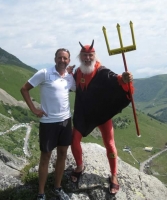
It all changed and over time, so did I. Work all of a sudden became work. We were no longer in control of our working lives. The post industrialists had made their way to William Parker Sports College. Data capture and assessment levels became the name of the ‘game’. Free range students who learned the good stuff, the right way, became battery farmed grade producers on superficial courses that took short cuts.
My new ‘existence’ took its toll and I carried the burden of the new conditions fully on my shoulders for many months. Our established culture of success was systematically unpicked and cast aside to make room for a new approach. I became quieter, slept badly, became irritable and pre-occupied. I arrived as I did before every morning to carry out my professional duties; I still fulfilled fixtures and attended meetings. I taught these new courses and planned and prepared my lessons... But it was now WORK! Although manually nothing had really altered. The same number of sixty minute hours was put in and job descriptions were satisfied, a powerful mind set change had happened. Mentally I was exhausted and emotionally I was drained, I had to take a deeper look at it all.
Not only did I walk purposefully towards the car park on that frosty morning in February with a four day week and no Head of Department responsibility, I had also arranged to have the final term of the school year ‘off’. So moved and emotionally upset by the educational changes happening in front of me I asked for the opportunity to have a sabbatical. Some time for me to assess where I was and what I needed to do to take future strides forward. For the first time in my adult life my nose was away from the grindstone and my eyes to the bigger picture were wide open.
“Less work leads to more living” Hyde.M (2010)
“What? And you are going to be ‘off’ from half term until September?”............ “Yes!”
As my temporary departure crept up and May half term approached, I made sure that I took the time to give my decision the seriousness that it deserved in all of the conversations I had with everybody who chose to chat with me. It had been four months since I broke the news to those closest to me, my reasons by now were well known. I was always certain that I had made the right choice and was now feeling the mental and physical benefits from making it. I looked better through feeling better. I exercised more, I lost weight and I was back to my former self all because I was about to become idle and lazy. These almost immediate effects also saw a change in mindset in my friends and the perceptions demonstrated towards me and also directly towards themselves.
“Respect to you mate! Have the best time”.
“It makes the rest of us look silly for carrying on with it...”
“Maybe I should knock on John’s door?”
So where did my idleness take me? What did I do with my time off? How lazy was I? And how lazy have I been since? My sabbatical enabled me to lazily drive over ten thousand kilometres and cycle over four thousand on a Tour de France following adventure. I lazily climbed nineteen of the toughest and most iconic mountains in the Alps and Pyrenees. It was work, but it didn’t feel like it!! I idly wrote a three month journal within which my heart was bared and reflection took place to clarify my thoughts and feelings. I met many wonderful people and took them up on their offers of joining them for a drink, have lunch, a coffee or a ride. During my time off from work I cleared the layers of numbness that had built up over time through the non addressing of stresses and fears and after skinny dipping in lake Annecy at the crack of dawn I lazily made my way home!
Work started for me again that September, not on a Monday but on my four day a week Tuesday! My salary dropped, but my numbers worked as I was now earning just what I needed with no excess. I was producing just enough for me. The time left after this was used to idle. The freedom MY MONDAY gave allowed me to choose how “I skived, slept, lunched at leisure, nursed a hangover and took time out”. Not being busy allowed me to get into mischief, I had idle hands.
My adventure retuned me refreshed and clear. It gave me an ability to invest in my leisure time and own the opportunities that my leisure time presented. Becoming an educational consultant for struggling schools on Mondays that suited, I had long weekends running European marathons, I wrote educational policies for Physical Education departments. Once again I had returned to work and once again......it didn’t feel like it!
As has my life ever since.











